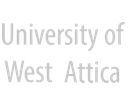Two-step Molecular Methodology (PCR-RFLP) for Differential Detection and Broad Identification of Agriculturally-important Fungi Applicable in Decentralized Units of Agricultural Development
Abstract
Potato diseases caused by fungal pathogens are agents of massive economic loss sometimes igniting social upheaval not only whenever occurring, by destroying/degrading the production, but also even without occurring, due to the
diminishing of the commercial value brought about by precautions and measures taken to forestall fungal growth, such as spraying crops with antifungals compared to
biological practices. The prompt differential diagnosis of fungal pathogens by molecular methodologies may allow early diagnosis and response with correct geoponic practices, bringing about significant economic and environmental profit, especially when intercepting quarantine or emerging pathogens. Differential diagnosis may be facilitated in terms of routine performance if pathogen preferences are taken into account. The use of PCR to amplify multi-copy fungal sequences defined by the ITS-1/4 primer pair allows the selective detection of fungi over viruses, nematodes and bacteria while the inherent polymorphism of the target sequence allows a rough classification by the amplicon length and a more detailed one, down to species level, by restriction digestion profiling using the Msp I and the Hae III endonucleases
Keywords
DOI: 10.26265/e-jst.v10i3.3068
Refbacks
- There are currently no refbacks.






